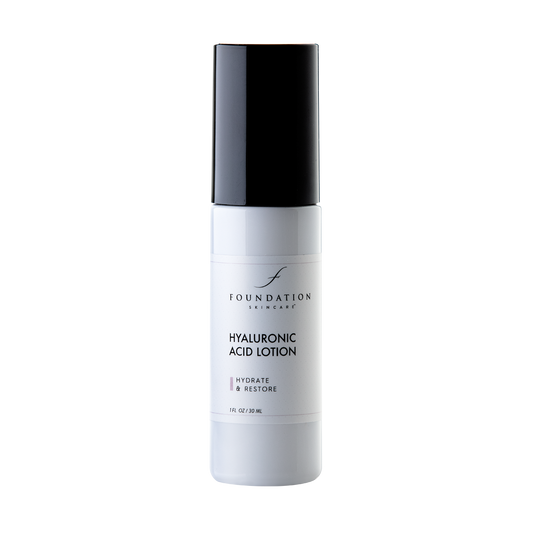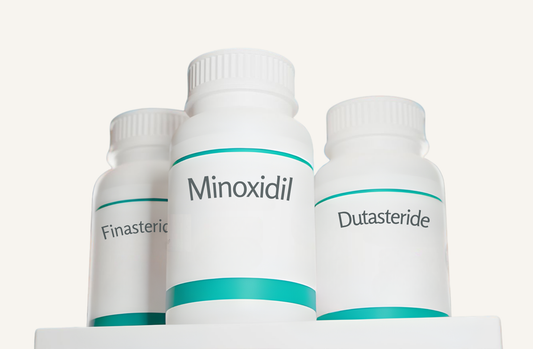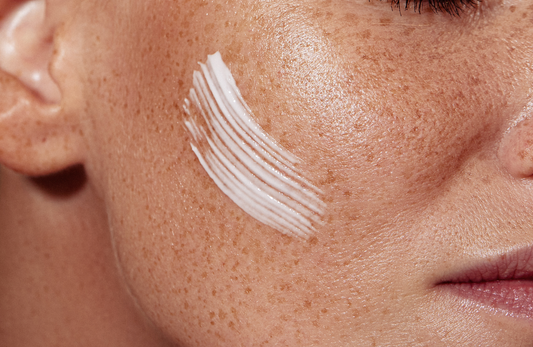Is your skin oily, dry, or somewhere in between?
Understanding your skin type is crucial for maintaining its health and ensuring you use the right skincare products to meet your needs. Different skin types require different approaches and there are a few easy steps you can take at home to determine your skin type. We’ll share some tips on how to know your skin type below, as well as suggestions on how to tailor your skincare routine effectively for healthier, happier skin.
Steps to Determining Your Skin Type At Home
There are five main skin types: oily, dry, normal, combination, and sensitive. Here’s a quick summary of the different skin type characteristics:
- Oily: Oily skin often appears shiny or greasy due to excess sebum (oil) production, which can lead to clogged pores and breakouts.
- Dry: Dry skin is the result of too little sebum production, often appearing dull, rough, or flaky. Indoor heat or cold wind can exacerbate symptoms.
- Normal: Normal skin is neither too oily nor too dry. Blemishes occur infrequently and skin is smooth and balanced.
- Combination: Combination skin has areas that are dry and areas that are oily. Oily skin tends to be isolated to the T-zone (forehead, nose, and chin), which has the most oil glands on the face. Cheeks are often drier. This type of skin also tends to vary during different seasons during the year.
- Sensitive: Though sensitive skin is often referred to as its own skin type, a person with sensitive skin can also have oily skin, dry skin, or combination skin. However, sensitive skin is more susceptible to external irritants like harsh ingredients or environmental stressors.

Hyaluronic Acid Lotion
• Helps protect, repair & heal the skin
• Anti-inflammatory ingredient benefits
Sale price
$45
To determine what type of skin type you have without making a trip to the dermatologist, you can try the following:
Cleanse Your Face
Thoroughly cleanse your face with a gentle cleanser suited for all skin types. Then pat dry. This removes any dirt, oil, or makeup residues that could interfere with your skin’s natural state.
Wait for an Hour
After cleansing, allow your skin to breathe for about an hour without applying any additional products. This gives your skin enough time to return to its natural state without any external influences.
Observe Your Skin’s Appearance
Now, observe how your skin looks and feels. If it feels tight, flaky, or rough, you likely have dry skin. If it appears shiny or greasy, you have oily skin. Normal skin will feel balanced, neither too oily, nor too try, and combination skin will appear with an oily T-zone with dryness in other areas.
Sensitive skin will typically react to external triggers, letting you know you have sensitive skin, but it may also appear in its natural state as red, irritated, or inflamed.
Check for Large or Small Pores
Take note of your pore size. Large pores are another indicator that you likely have oily skin. If they only appear in your T-zone, you may have combination skin. Pores may also change over time as collagen production decreases.
Note Any Specific Issues
You may also want to pay attention to any specific skin concerns you may have, such as acne, rosacea, hyperpigmentation, or signs of aging. These factors can help further determine your skin’s unique composition and specific needs to guide your skincare choices.
Skincare for Your Exact Skin Type
Determining your exact skin type may require some trial and error, especially if you fall into the combination category. You may also need to adjust your skincare routine based on seasonal changes, hormonal fluctuations, or environmental factors.
Once you have determined your skin type, it’s time to customize your skincare routine. Foundation Skincare offers a range of products suitable for all skin types, including sensitive skin. This guide to skincare based on skin type can help point you in the right direction, but here are some quick tips you should know about:
- For dry skin: Foundation Skincare’s Hyaluronic Acid Lotion works like a magnet for hydration, keeping skin moisturized and supple. It hydrates without leaving skin oily or shiny and helps to repair the skin barrier to protect against environmental stressors.
- For oily and acne-prone skin: Foundation Skincare’s Niacinamide Lotion 10% also improves the skin barrier while controlling sebum production, minimizing redness, and shrinking pores. And our Azelaic Acid 14% Cream reduces excess oil by impacting how hormonal changes affect sebum production, all while easing the inflammation associated with breakouts.
- For normal skin: If you have no specific issues and just want to maintain healthy skin, you should look for products that protect against sun damage (Foundation Skincare’s Spectrum supplement and high SPF sunscreen), strengthen your skin barrier (FS Niacinamide Lotion 10%), and keep skin hydrated (FS Hyaluronic Acid Lotion). You may also want to prevent premature aging by working an antioxidant into your routine like Foundation Skincare’s Vitamin C Lotion 20%, which supports collagen production and brightens skin.
- For combination skin: All of the products in the Foundation Skincare collection can be layered together, and this is highly encouraged for the most benefit. This means using the sebum-controlling products we mentioned above, like Niacinamide Lotion 10% and Azelaic Acid 14% Cream, as well as Hyaluronic Acid Lotion for deep hydration.
- Sensitive skin: As we mentioned above, Foundation Skincare products are suitable for all skin types, including sensitive skin. Some of our more potent products like Azelaic Acid 14% Cream should be used gradually over the course of two to three weeks until your skin acclimates and you’re ready for everyday use.
You will also find that almost all of our products are multifunctional. For instance, Vitamin C Lotion 20% brightens skin, which can be helpful when trying to fade dark spots and acne scars, but it also boosts collagen production to reduce signs of aging. Similarly our Night Renewal Cream featuring 2% Granactive Retinoid has powerful anti-aging effects by promoting collagen synthesis and encouraging cellular turnover, but it also has potent anti-inflammatory benefits to help control skin conditions like rosacea and acne.
And no matter what your skin type is, sunscreen with an SPF of 30+ (50+ preferred) should be a mainstay in your routine to help prevent sun damage, premature aging, skin cancer and more.
Find more tips and resources on caring for your skin in the FS Journal.



